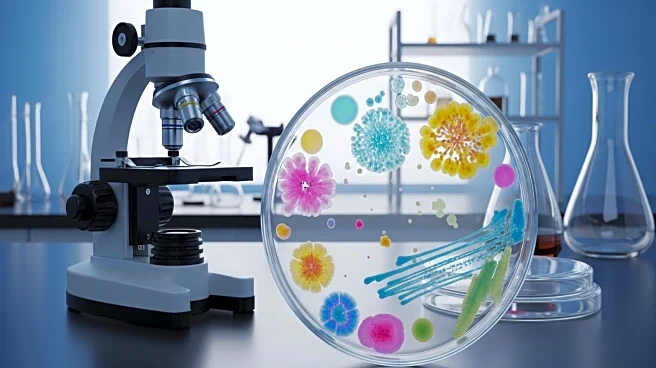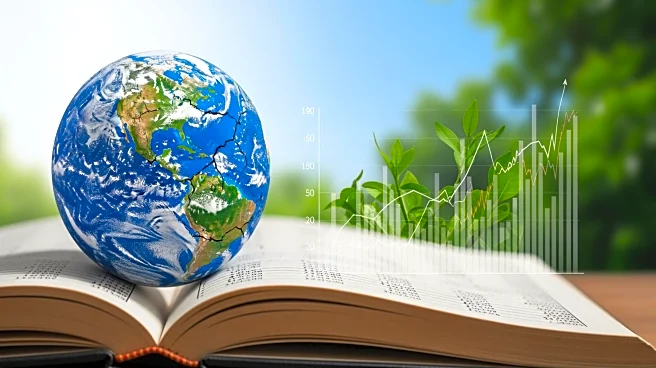What's Happening?
Researchers at Rockefeller University have developed a novel method to discover new antibiotics by sequencing bacterial DNA directly from soil samples. This approach bypasses the traditional need to culture bacteria in the lab, which has historically limited the ability to explore the vast genetic diversity of soil microbes. By extracting large DNA fragments from soil, the team was able to assemble complete bacterial genomes and identify bioactive molecules, including two new antibiotic leads. This breakthrough, reported in Nature Biotechnology, represents a significant advancement in accessing the genetic potential of uncultured bacteria, which are believed to hold a wealth of untapped therapeutic compounds.
Why It's Important?
The discovery of new antibiotics is crucial in the fight against antibiotic-resistant bacteria, a growing public health threat. By unlocking the genetic secrets of uncultured soil bacteria, this research could lead to the development of new drugs that are effective against resistant strains. The ability to access and utilize the genetic diversity of soil microbes not only holds promise for medicine but also offers insights into the ecological roles of these organisms. This could have broader implications for understanding how microbes influence climate, agriculture, and environmental health.
What's Next?
The researchers plan to further explore the potential of their method by applying it to other metagenomic environments beyond soil. This could lead to the discovery of additional bioactive molecules with applications in medicine and other fields. The scalability of the approach suggests that it could become a standard tool in microbiology, driving a new era of discovery in the search for novel therapeutics. Continued research and development will be necessary to translate these findings into practical medical treatments.
Beyond the Headlines
This research highlights the potential of 'microbial dark matter'—the vast majority of bacteria that remain uncultured and unexplored. By accessing these hidden genetic resources, scientists can gain a deeper understanding of microbial ecosystems and their contributions to global processes. The ethical and environmental implications of harnessing these resources will need to be considered as the technology advances.










